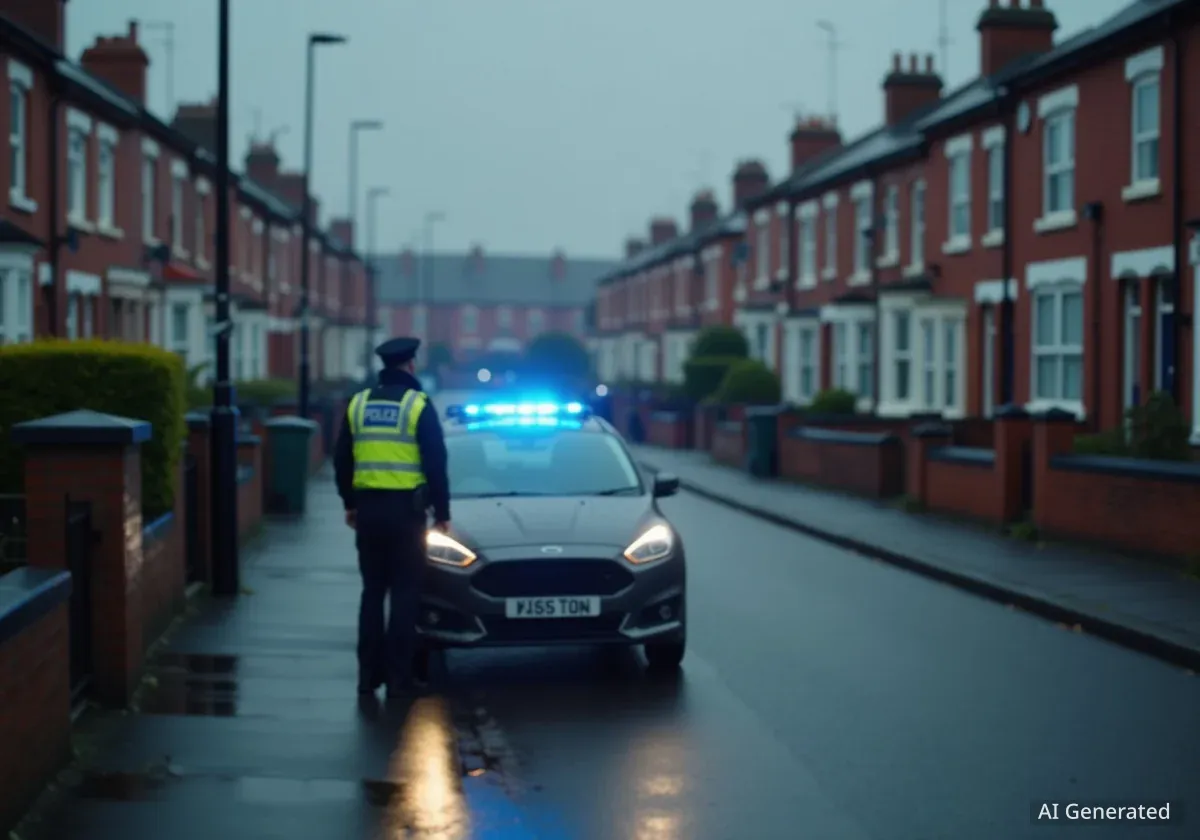Wirral Council has responded to public frustration regarding numerous road work sites that appear inactive, explaining that essential but unseen activities are often underway. The clarification comes after councillors raised concerns about driver discontent over temporary traffic lights and disruptions across the borough, particularly in west Wirral.
Officials confirmed that while a site may look empty, tasks such as monitoring gas levels or allowing materials to set are necessary parts of the process. The council also detailed its enforcement measures, having collected nearly £220,000 in fines from utility companies for permit violations between 2022 and 2024.
Key Takeaways
- Councillors have voiced public frustration over seemingly abandoned road works and extensive temporary traffic lights in Wirral.
- Wirral Council officials state there are valid reasons for inactivity, including gas level monitoring and material curing times.
- The council operates a permit scheme and penalises companies for unjustified delays, issuing over £80,000 in overrun charges from 2022 to 2024.
- Over 2,200 fines were issued in the same period, generating nearly £220,000 used to fund enforcement and transport services.
- Disruption is heightened by the simultaneous scheduling of council road resurfacing and essential utility upgrades.
Public Frustration Mounts Over Traffic Disruption
During a recent environment committee meeting on September 17, concerns were brought forward regarding the significant number of road works causing delays for drivers across Wirral. The works are part of a broad programme involving council-led road resurfacing, planned utility repairs, and emergency maintenance.
Councillor Allan Brame highlighted the disconnect between official data and public perception. He referenced a statistic indicating that 14,715 workdays had been saved due to projects finishing early, a figure he suggested would surprise many residents.
"This may come as a surprise to drivers waiting at endless temporary traffic lights," Cllr Brame stated, adding that people are "fed up seeing the roads closed and traffic lights on red and no sign of anybody doing any action."
The sentiment was echoed by Councillor Jenny Johnson, who represents West Kirby. She pointed to a specific increase in air pollution around Conway Street, where temporary traffic lights have been in place for several months. She described the situation in west Wirral as having the most temporary lights she had ever seen, creating "a huge amount of chaos across many parts of the borough."
Council Explains 'Empty' Work Sites
In response to the councillors' concerns, council officer Paul Traynor provided an explanation for why work sites often appear unattended. He assured the committee that the council actively manages the situation and that there are legitimate reasons for the apparent lack of activity.
"There is genuinely a reason why nobody is working there on that particular day," Mr. Traynor explained. He offered specific examples of necessary but non-visible work.
For instance, after a gas leak repair, utility companies like Cadent, which is currently upgrading the gas network, must conduct monitoring exercises. This involves leaving equipment in place to check gas levels over a period to ensure the repair is secure before the road can be fully reinstated. Other processes, such as allowing concrete or tarmac to cure, also require sites to be left undisturbed.
Coordinating Complex Works
The current disruption is a result of multiple large-scale projects occurring simultaneously. Wirral Council is undertaking its annual summer road resurfacing programme to address potholes and improve road quality. At the same time, utility companies are carrying out both planned upgrades and emergency repairs to water, gas, and electricity networks.
Mr. Traynor acknowledged that the convergence of these essential projects has magnified the impact on the road network. He noted that in some parts of Wirral, the limited number of alternative routes means any closure or diversion has "a dramatic effect" on traffic flow.
Enforcement and Financial Penalties
The council does not simply permit works and hope for the best. Mr. Traynor detailed the robust enforcement system in place to manage companies operating on the highway. Wirral Council operates a permit scheme where companies must book road space for a specific duration.
If these works overrun without a valid justification, the council issues financial penalties. This system is designed to incentivise companies to complete their work efficiently and on schedule.
Penalties by the Numbers (2022-2024)
- Overrun Charges: Over £80,000
- Total Fines Issued: More than 2,200
- Total Revenue from Fines: Nearly £220,000
The revenue generated from these penalties serves a specific purpose. According to the council, the funds are first used to cover the costs of running the enforcement service itself. Any surplus money is then reinvested directly back into the borough's transport facilities and services, benefiting the public in the long term.
This enforcement activity demonstrates that the council is actively holding utility companies accountable for their impact on the road network. The combination of the permit scheme and financial deterrents aims to minimise disruption for residents and commuters.
Wider Environmental Concerns Raised
The committee meeting also addressed other pressing environmental issues affecting the borough. Councillor Brame raised an urgent question concerning recent flooding in his Oxton ward.
He described a situation where children had to walk to school through ankle-deep water, calling the recurring problem "unacceptable." He pressed for information on what actions were being taken to resolve the issue.
Councillor Liz Grey, Chair of the committee, acknowledged the severity of the problem. She stated that flooding is a serious issue across the entire borough and one that is expected to worsen with the impacts of climate change. A formal response to Cllr Brame's specific enquiry will be provided at a future date.
In other business, the committee approved a progress report on the council’s ambitious Tree, Hedge, and Woodland Strategy. Councillors also formally adopted a plan for a new Mersey Forest, signalling a commitment to enhancing green spaces and biodiversity in the region.





